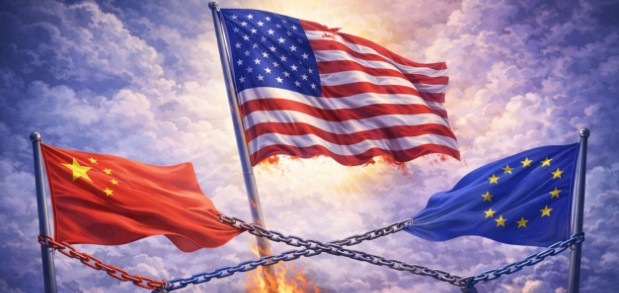China-based regulatory pressure on DJI and Autel

The United States is intensifying scrutiny of Chinese drone manufacturers DJI and Autel as lawmakers call for an urgent national security review, citing escalating concerns over surveillance, data leakage, and potential ties to the Chinese government. The renewed attention follows bipartisan pressure on the Office of the Director of National Intelligence (ODNI) to determine whether these companies pose threats to US infrastructure and sensitive operations.
DJI, the global market leader in consumer and enterprise drones, has long been under the microscope of US authorities. Over the past five years, it has faced mounting allegations that its products may be used to collect and transmit sensitive data to Chinese authorities, especially when flown over critical sites such as power grids, ports, and government facilities. Autel Robotics, a lesser-known but rapidly growing competitor, has also drawn scrutiny due to its Chinese ownership and expanding market share in public safety and industrial drone segments.
Lawmakers argue that the widespread use of DJI and Autel drones by American police departments, fire brigades, infrastructure inspectors, and even federal agencies leaves the country vulnerable to cyber espionage. Despite earlier measures—such as placing DJI on the Department of Commerce’s Entity List and banning its procurement by federal agencies—both companies continue to operate widely in the US through retail and private sales.
The latest push urges the ODNI to issue a formal determination under the Intelligence Authorization Act, which allows federal intelligence bodies to assess foreign corporate threats. Lawmakers emphasize that while commercial drones offer substantial benefits for public safety, agriculture, and surveying, these advantages must not come at the expense of national security. The fear is not just theoretical: drones are increasingly networked devices that collect video, telemetry, geolocation data, and potentially user credentials. With DJI and Autel governed by Chinese data laws that compel domestic firms to cooperate with state intelligence, these risks are taken seriously.
This development reflects a broader geopolitical trend. As tensions between the US and China deepen, technology platforms—from TikTok to semiconductors—have become flashpoints. Drones are no exception. What was once a question of consumer choice has now become a matter of sovereignty and strategic control.
For the US drone ecosystem, the implications are significant. A potential ban or further restrictions on DJI and Autel could open opportunities for domestic drone manufacturers and allied nations to fill the void. Companies like Skydio, Teal Drones, and Parrot are already positioning themselves as secure alternatives. However, the gap in capabilities, affordability, and ecosystem maturity remains a challenge.
Ultimately, the push for this review underscores how drones have evolved from hobbyist gadgets into tools of geopolitical consequence. As lawmakers continue to ring alarm bells, manufacturers, regulators, and users alike will have to navigate an increasingly complex landscape where airspace dominance is tied not only to engineering but to trust.


%20(1)%20(1).jpg)


